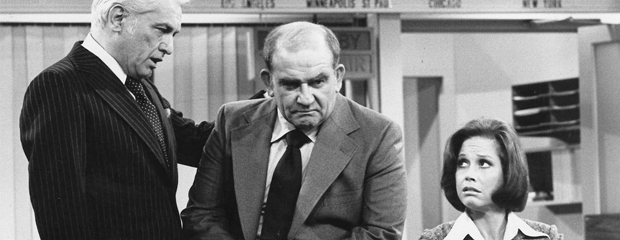
As Newtown arrives in NYC theaters on 10/7 and LA theaters 10/14, we look back at our interview with director and producer Kim A. Snyder. Read all about the process of making this extraordinary film and how the film team handle such a sensitive subject matter.
We were honored to host the CT Premiere of Newtown at the 2016 Festival and encourage everyone to see this incredible documentary in theaters.
GIFF: What originally inspired you to become a filmmaker? Has that reason changed with time and experience?
Kim Snyder: I can’t remember a time I wasn’t storytelling; written word, an inherent compulsion for self expression, photography, music, a love for film, and a general inclination to direct people and environments around me. By my late 20s, I was working on the production side of narrative filmmaking; a urn in personal life compelled me to direct a first documentary and i have been doing it ever since.
GIFF: What were you most hoping to capture with this documentary?
KS: Firstly, I was interested in breaking through an increasing desensitization toward these horrific shootings and in simply documenting the widespread impact of an historic event that required bearing witness from so many who were affected. I am always drawn first to character in terms of determining story. With Newtown, I became interested in how best to render community as character, in an attempt to illustrate the collective trauma and fallout of such a catastrophic event years out, and to give voice to the multitude of victims which is something difficult for the news cycle to capture as it invariably moves on to the next incident. I was drawn to the profound effects of collective trauma and the need for many in Newtown to be heard on their own terms in an effort to make meaning out of the unthinkable and I wanted to create an emotional experience that humanized the issue in a universal way.
GIFF: How did the residents of Newtown react to your presence in town? Were they open to having their story heard or more likely unable to relive the experience?
KS: It was like peeling an onion. In that first year, I did not feel comfortable penetrating the privacy of those most affected. My first connections were with the interfaith community which informed an intimacy and framing that was at once philosophic, existential, spiritual to some extent, and lent a holistic approach to a community wrestling with the darkest of journeys. Fr. Bob, the priest who buried eight of the twenty children, was one who was among those severely affected in terms of trauma. As I organically developed relationships with others through careful trust building, I began to develop a story of town through a number of prisms including that of parents of loss, educators, first responders, neighbors, youth…faces that render a portrait of any town and one that would redefine victim and explore the profound effects of survivor guilt and the resilience required to repair the social fabric of the entire community in the wake of the tragedy. It was all conducted in the spirit of collaboration with those who chose to participate, and those that did found it cathartic in their healing process to express their feelings and experiences.

GIFF: What was the most eye opening experience you had over the course of filming with residents and victims of the shooting?
KS: Likely the experience of filming the scene with Nicole in the car. it was so raw and intimate and simply shattered the entire crew. I was so very concerned about her trauma that evening and we spoke at length about her well being, but it was so very powerful for all. Along with so many conversations off camera with all that were so poignant.
GIFF: Did the direction of your documentary change shape from what you first envisioned as you got to know residents and victims personally?
KS: Absolutely; some things changed radically and some remained constant from the original vision. I always envisioned depicting representations of the community as a whole to redefine victimization as it affects an entire town, but as more varied “testimonials” were garnered, that became broader than at the beginning when a lot of emphasis was placed on the interfaith community. With the parents who participated, it was a joint exploration with no particular agenda at the outset except to explore the terrain of grief and resilience. I very much wanted to lift up stories of courage, grace and strength I was observing, and of the organic connections between residents in the wake of horror.
GIFF: How have audiences reacted to the subject matter at screenings?
KS: Since we premiered at Sundance, audiences have tended to react in a similarly visceral and powerful way; they have remarked on the rareness in authenticity of grief and trauma depicted, in the remarkable resilience of those in the film, of the inspiration and uplift in observing this, and also often with outrage over the perception of stagnation in national progress with the issue. Mostly they have responded with incredible resolve to become more involved and to participate in affecting change so that we can address issues of gun violence with a greater sense of power. It has opened up dialogue in a safer space and provided a community space to do so and to collectively grieve over something that cannot and should not be forgotten. The film seems to be aiding and sparking a grassroots movement we have seen nationally that gives hope that the conversation has and is shifting since 12/14; we intend to harness that in our ambitious impact campaign now unfolding (newtownfilm.com).
https://www.youtube.com/watch?v=KP6V_L6OKgY
GIFF: What do you hope audiences take away from watching Newtown?
KS: I think it is as much a universal treatise on grief and trauma as it is about the issues of gun violence that underlie it. As a general observation, our culture is not always so adept at dealing with loss and grief, and the subjects of the film inform us, through their courage in sharing their stories, about how to be present in the midst of grief. It also speaks to the essence of community and the collective responsibility to respond to unspeakable loss and the desire to affect change. Hopefully, audiences will walk away with a far greater empathy for what communities like this experience in the aftermath of mass gun violence. Through our discussions and impact campaign that will accompany the release of the film, we also intend for it to fuel conversations in safer, less polarized spaces about current policy reform and positive initiatives for change. I would like to think the film offers a profoundly emotional but rewarding journey to experience among community. Perspective, anger, and uplift from a community that offers profound truth and life perspective. Most importantly, the conviction to participate in affecting change.
GIFF: How do you measure the success of documentaries that feature social issues? Is national change your ultimate goal?
KS: As one writer recently said about our film so eloquently, the murder of schoolchildren is not a political issue but a humanitarian issue. We wanted to take the discussion out of a more polarized partisan place and open up a dialogue that aimed at putting a human face on the issue. Our characters do this so articulately – for example when David Wheeler, father of Ben who was killed on 12/14 says, “there’s a natural human desire to want to protect the rest of the world from having to go through this.” We didn’t want to make an “advocacy” film with a specific agenda, but we do want it to make people better understand what the fallout of gun violence looks like each time we hear about another of these escalating incidents in a very visceral way. Having said that, we want to be part of the tipping point on a grassroots level.

Snyder is an award-winning filmmaker with over a dozen shorts and two feature documentaries. Her most recent film, Welcome To Shelbyville, about immigration in small town America where a new group of Muslim Somali refugees find themselves, is a recipient of a 2010 Gucci-Tribeca Documentary Fund grant, an official selection of the US State Department’s 2010 American Documentary Showcase, and had its national broadcast on PBS’s Independent Lens in 2011. Kim co-created the BeCause Foundation directing and producing its first three short documentaries, Alone No Love, One Bridge to the Next, and Crossing Midnight, which have won numerous festival awards and been the catalyst for campaigns that have furthered the work of the social innovators they highlight. Kim also directed and produced the award-winning documentary feature I Remember Me, which was distributed by Zeitgeist Films. In 1994, Kim associate produced the Academy Award®winning short film Trevor, which became the cornerstone of The Trevor Project, a not-for-profit organization dedicated to suicide prevention among gay youth. Kim graduated with a Masters in International Affairs from the Johns Hopkins School of Advanced International Studies, and resides in New York City.
Images and Bio courtesy of Kim A. Snyder




